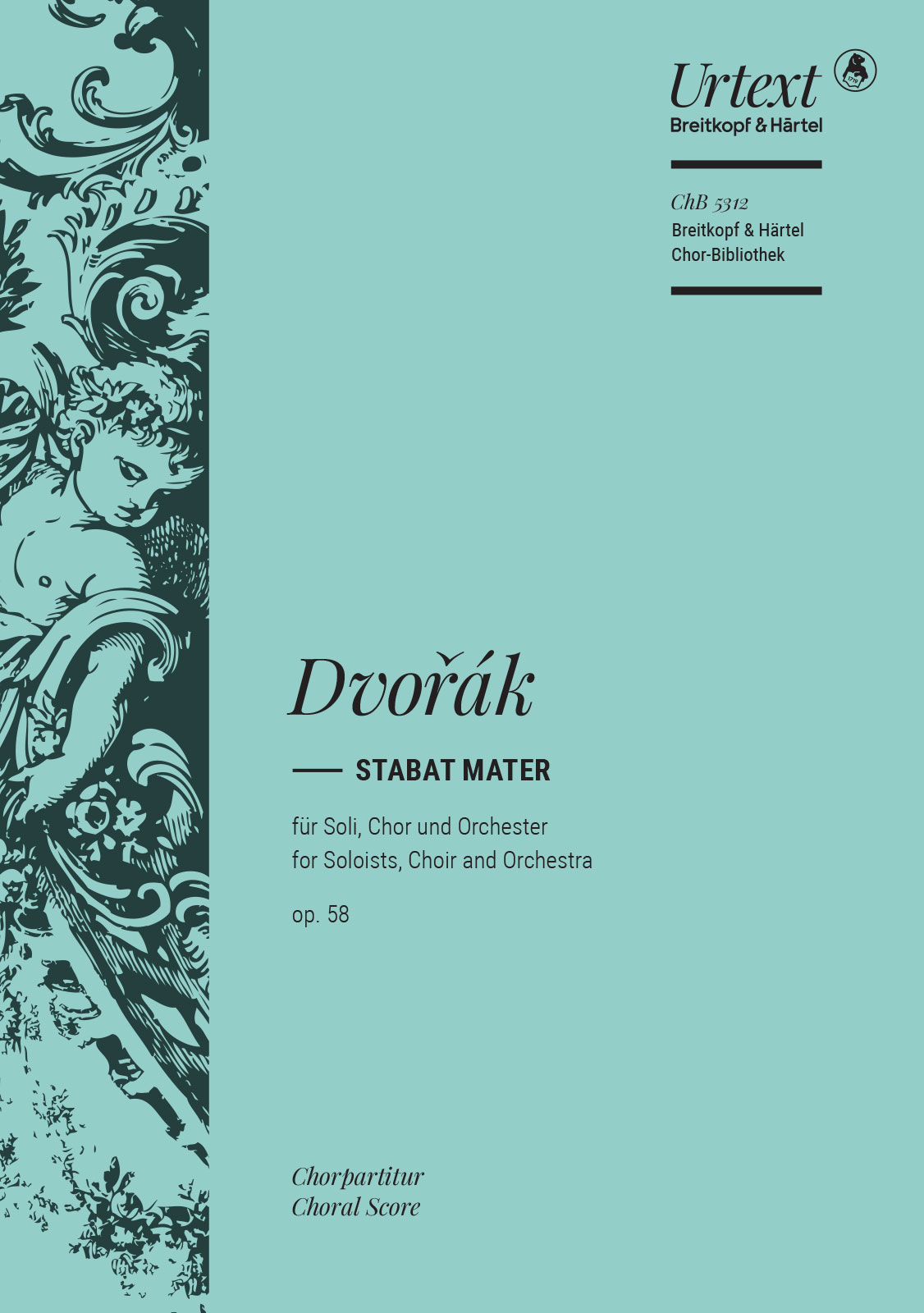Stabat mater Op. 58
Urtext

Composer: Dvorak, Antonin
Editor: Döge, Klaus
Arranged for: Chorus a cappella
Publisher:
R.R.P 11
Our Price: 9
Digital Download – PDF
Please create and forward a copy of this publication to the customer

Composer: Dvorak, Antonin
Editor: Döge, Klaus
Arranged for: Chorus a cappella
Publisher:
| Product Code: | 979-0-004-81678-3 |
| ISMN: | 979-0-004-81678-3 |
| Publishers Number: | ChB 5312D |
| Orchestration: | Solos: SATB – mix ch – 2.2.2.2 – 4.2.3.0 – timp – org – str |
| Page count: | 46 |
| Condition: | New |
Dvořák’s early life was marked by his musical talent, which was evident from a young age. He became an accomplished violinist and contributed to the amateur music-making in his father’s inn. Despite facing financial difficulties, Dvořák pursued his passion for music and studied at the Institute for Church Music in Prague.
Throughout his career, Dvořák composed a wide range of works, including symphonies, chamber music, operas, and choral pieces. Some of his most famous compositions include the “New World Symphony,” “Cello Concerto in B Minor,” and the opera “Rusalka.” His work had a significant impact on the development of nationalistic music in Bohemia and beyond.
Dvořák’s legacy continues to be celebrated today, with numerous performances and recordings of his music. His influence can be seen in the works of many composers who followed him, and he remains a beloved figure in the world of classical music.
R.R.P 11
Our Price: 9
Digital Download – PDF
Please create and forward a copy of this publication to the customer
Your basket is currently empty!
Notifications
